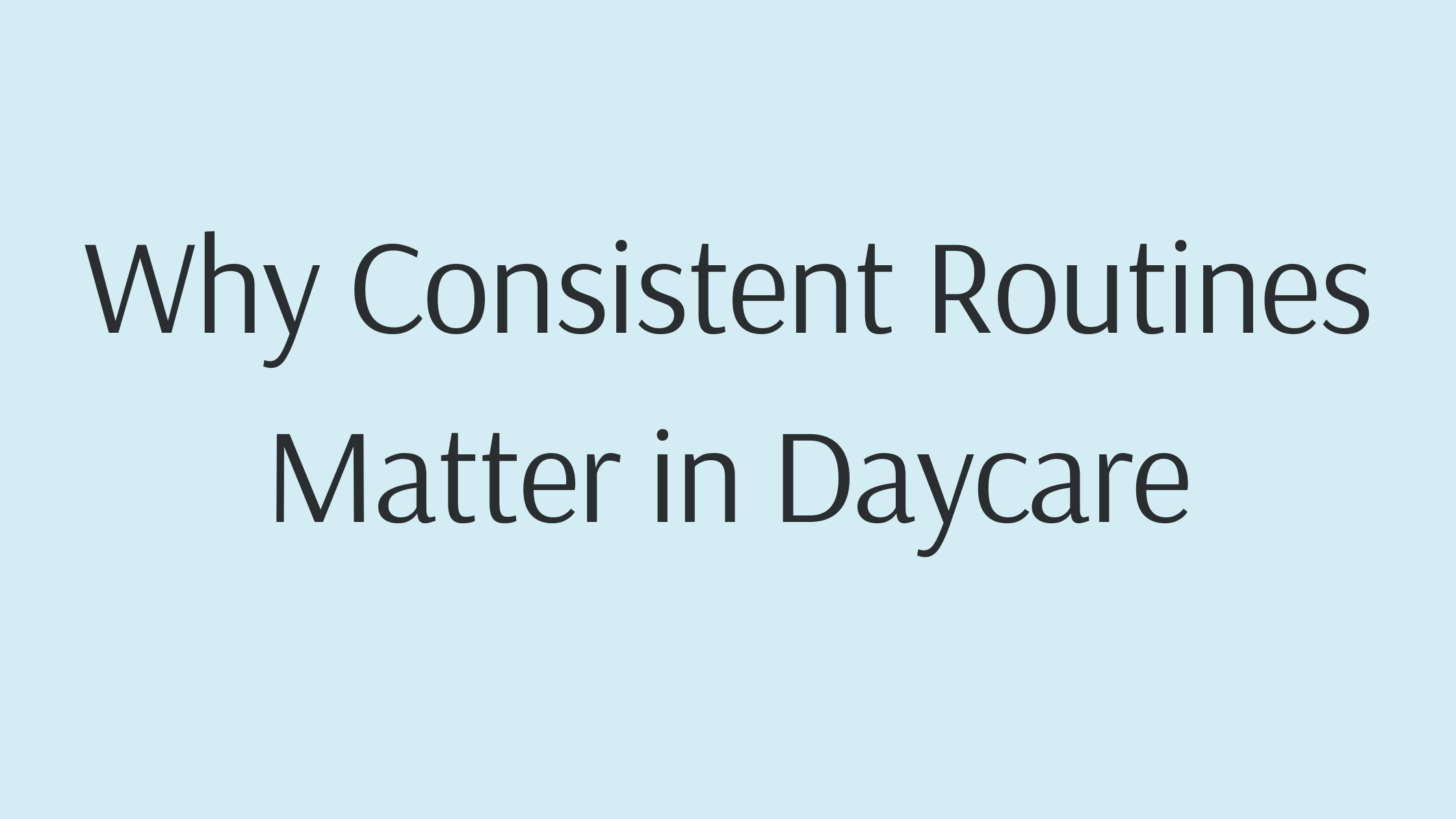
Why Consistent Routines Matter in Daycare
Parents entrust daycare providers with establishing routines that help their children thrive. A well-structured day provides security, promotes learning, and creates a positive environment where children can grow confidently. Here's a comprehensive guide to understanding and implementing effective routines in your daycare.
1. Provides a Sense of Security
Children thrive on predictability. Knowing what to expect each day helps them feel safe and secure, especially when they're away from home. A consistent routine minimizes anxiety and allows children to settle in more quickly.
- Example: Starting the day with the same morning greeting or activity can help ease transitions and set a positive tone.
2. Encourages Positive Behavior
Routines teach children what is expected of them throughout the day. Clear schedules and repeated activities help reduce behavioral challenges, as kids are less likely to act out when they know what comes next.
- Tip: Use visual aids like charts or calendars to outline the day’s activities, especially for younger children.
3. Supports Cognitive Development
Structured routines provide opportunities for children to learn and develop essential skills. Activities like circle time, storytime, or arts and crafts encourage problem-solving, language development, and creativity.
- Pro Tip: Incorporate learning moments into routine tasks, like counting blocks during cleanup or singing songs during transitions.
4. Helps with Transitions
Transitions—moving from one activity to another—can be challenging for kids. Consistent routines make transitions smoother because children know what to expect.
- Example: Use transition cues like songs, clapping patterns, or countdowns to signal the end of one activity and the start of another.
5. Builds Independence
When children are familiar with routines, they begin to take initiative. Repeating activities like cleaning up toys or washing hands after meals empowers kids to take responsibility and build independence.
- Tip: Celebrate small successes to encourage children’s efforts in following routines.
6. Improves Communication with Parents
A consistent routine isn’t just beneficial for kids; it’s valuable for parents, too. When parents know what their child’s day looks like, they feel more connected and confident in your care.
- Pro Tip: Share daily schedules with parents and provide updates on how their child is adapting to the routine.
7. Adapting Routines for Flexibility
While consistency is important, flexibility is also key. Unexpected events like weather changes or children’s moods may require you to adjust plans. Having a routine framework allows you to adapt without losing structure.
- Tip: Keep backup activities ready, such as indoor games or quiet-time books, to handle unforeseen changes.
FAQs About Routines in Daycare
Q: How detailed should my daycare routine be?
A: Your routine should provide structure without being overly rigid. Focus on key parts of the day, like meal times, naps, and play sessions, while leaving room for spontaneous activities.
Q: What if a child struggles with the routine?
A: Be patient and provide gentle guidance. Some children need more time to adjust. Use visual aids and consistent cues to help them feel comfortable.
Q: How can I communicate my daycare routine to parents?
A: Share your routine during enrollment and include it in parent handbooks or newsletters. You can also provide daily or weekly updates through tools like KidzLog.
Q: Should I adjust routines for different age groups?
A: Yes, routines should be tailored to the developmental needs of each age group. For example, infants may need more frequent naps, while preschoolers benefit from longer activity periods.
Conclusion:
A consistent routine is the backbone of a successful daycare. It provides stability for children, fosters positive behavior, and builds trust with parents. By creating and maintaining predictable yet flexible routines, you're setting the stage for a happy and thriving daycare environment. Ready to simplify your routine management? Explore tools like KidzLog or visit FindChildCare.ca for more daycare resources!
